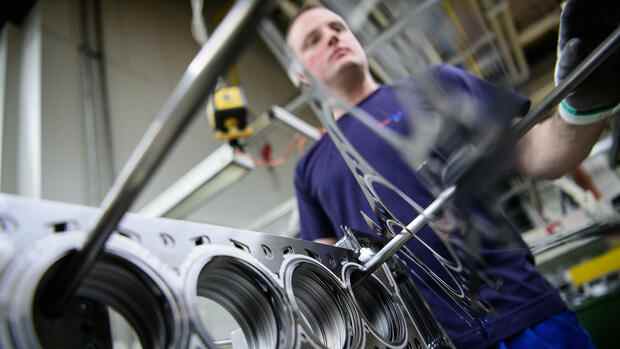The manufacturing sector once again recorded a record level of orders.
(Photo: dpa)
Berlin Despite the looming recession, the order books of German industry are thicker than ever. The number of orders in August increased by 0.3 percent compared to the previous month, as the Federal Statistical Office announced on Wednesday. Compared to the same month last year, there was an increase of 11.1 percent. “The manufacturing industry has recorded a new high in open orders every month since February 2022,” as the Federal Office explained in relation to the statistics that have been kept since 2015.
One reason for the ever-growing backlog of orders is also given: “In addition to high energy costs for industrial companies, the ongoing shortage of preliminary products continues to lead to problems when processing orders”.
Open orders from Germany increased in August by 0.1 percent compared to the previous month, those from abroad by 0.5 percent. The stock of manufacturers of capital goods such as machines, systems and vehicles increased by 0.3 percent, and among consumer goods producers by as much as 1.8 percent. In contrast, it shrank by 0.1 percent among manufacturers of intermediate goods.
According to the information, the order backlog stagnated at 8.0 months. It indicates how many months the companies would theoretically have to produce with unchanged sales without new incoming orders in order to process the existing orders. For manufacturers of capital goods, the range is above average at 11.8 months.
Top jobs of the day
Find the best jobs now and
be notified by email.
The delivery bottlenecks in German industry have recently increased again. In September, 65.8 percent of the companies surveyed reported material shortages, after 62.0 percent in August, as the Munich-based Ifo Institute found out in its monthly survey. “Unfortunately, the hoped-for sustainable relaxation did not materialize,” said Klaus Wohlrabe, head of the Ifo surveys. “There is therefore no support for the economy during the recession for the time being.”
More: How the energy crisis is threatening the German economy
